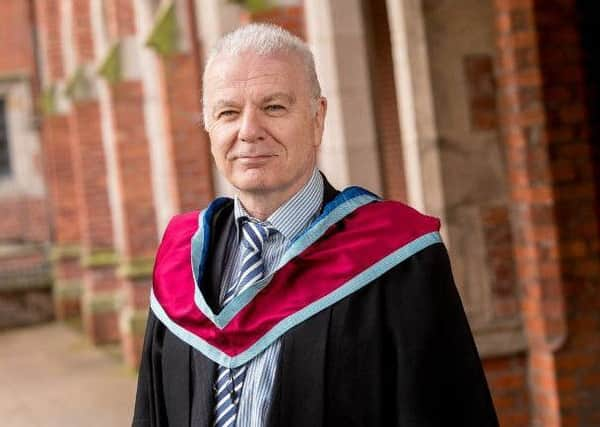Cancer patients ‘ashamed’ to report embarrassing side effects


The poll carried out for Macmillan Cancer Support found that around one in five people in the UK living with cancer found it difficult to seek help with bladder problems or sex and relationship issues.
Macmillan is worried shame and stigma is preventing people getting help for very common and often treatable side effects, putting them at risk of deteriorating physical and mental health.
Advertisement
Hide AdAdvertisement
Hide AdSex and relationships are the number one taboo issues in the UK with more than half of people saying they found these issues hard to talk about. The poll showed other prominent taboos are problems with bowels or bladder (46%), financial issues (46%) and feelings of sadness and depression (39%), all of which can occur as a result of a cancer diagnosis and treatment.
Comber man Gary Hunter, who was diagnosed with chronic lymphocytic leukaemia in 2008 and with transitional cell carcinoma in 2011, described the findings as “unsurprising”.
He said: “A cancer diagnosis and treatment can wreak havoc, physically and emotionally. I was unprepared for the range and depth of problems I faced.
“My cancer-related issues fuelled an ongoing and vicious depression; it was like arriving in an unknown country without a roadmap or any idea how I got there. I couldn’t find my way back.
Advertisement
Hide AdAdvertisement
Hide Ad“Relationships with friends and family suffered and I felt isolated. I found it difficult to accept I needed help and I think this is something we, particularly men, aren’t good at in Northern Ireland.
“Too many people see it as a weakness; this view must be challenged. We need to talk, to ask questions and accept the help that’s offered.”